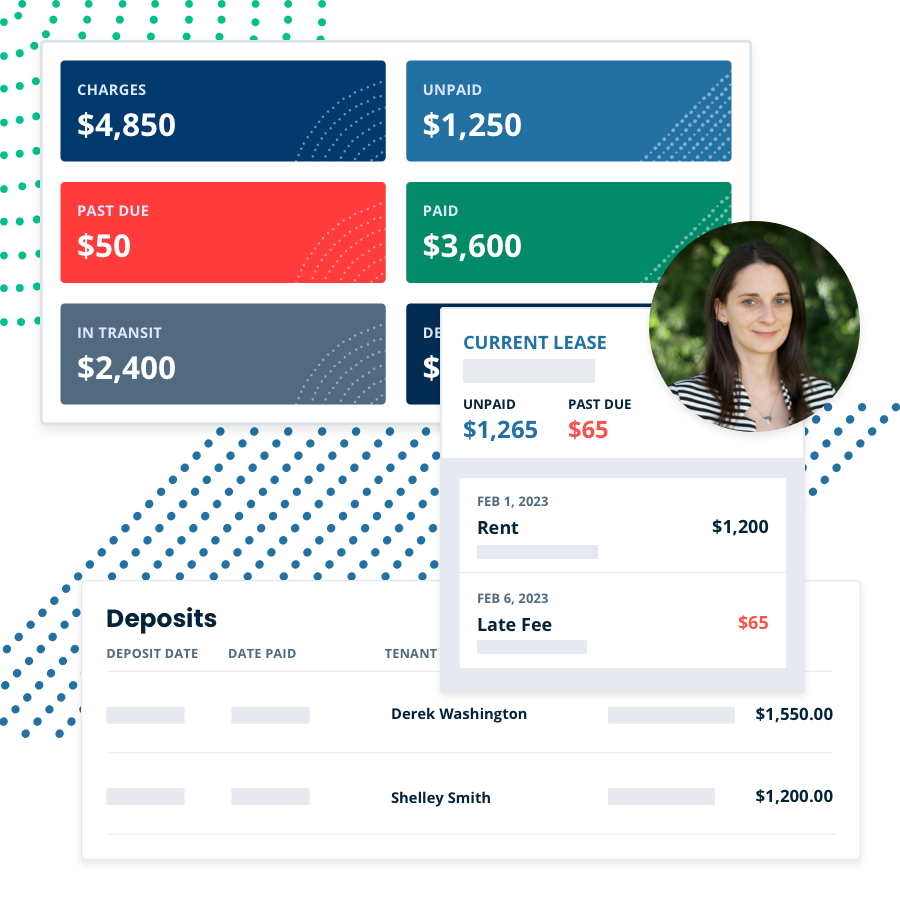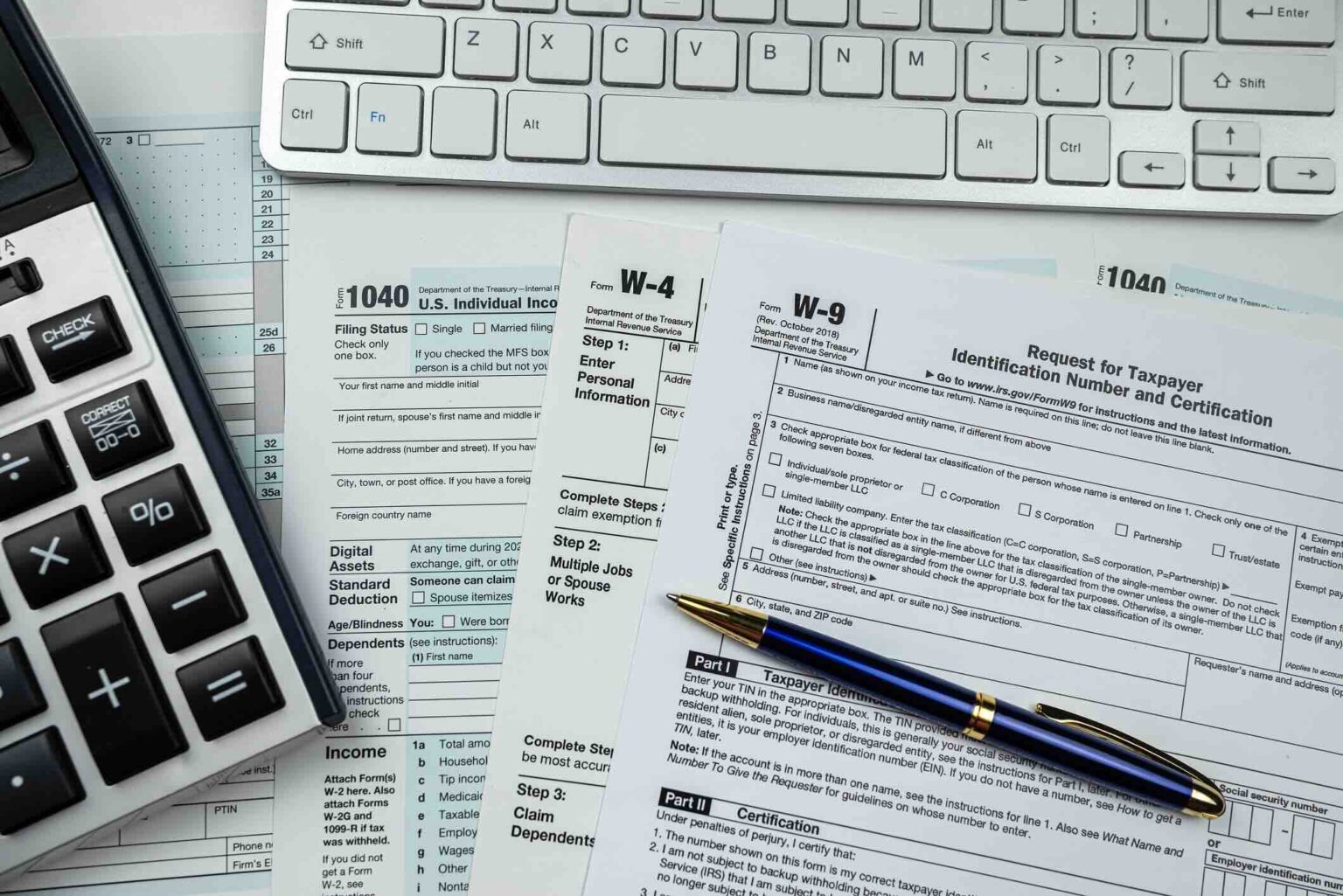Tax season is an annual event that comes and goes, but the IRS and its numerous tax forms are here to stay. You may recognize forms like Schedule 1, 1040, and W-9 — they’re just a few of the IRS’ greatest hits. For our purposes, we’ll focus on W-9s and why a tenant might request one.
While TurboTenant doesn’t fill out W-9s on behalf of landlords who use the platform, a renter may have a few valid reasons for needing the form. Just know it’s not a common request — especially in the traditional tenant/landlord relationship context.
Generally, independent contractors issue W-9s to verify an individual’s name, address, and tax identification number (TIN) for income. In other words, it’s a formal request for information. It can be a confusing request for a landlord because they aren’t typically contractors for their tenants.
That said, there are a few circumstances where this formal request makes sense. Let’s examine a few scenarios where it’s reasonable for a tenant to request a W-9.

Form W-9 Request Examples
A typical response to W-9 inquiries from a tenant could be suspicion. As a landlord, perhaps you’re a bit uneasy about handing over sensitive information about your name, address, TIN, or SSN. What might your tenant do with that information?
To put your mind at ease, we talked to Riley Adams, a licensed CPA of WealthUp.com, to find some common reasons tenants might ask for a W-9, and he was kind enough to walk us through a few scenarios that make sense.
Landlords with Interest-Bearing Security Deposits
Some states require landlords to place security deposits in interest-bearing accounts. In those cases, it might be necessary for a tenant to obtain a W-9 to claim the earned interest on their tax return.
“If the landlord holds a security deposit per applicable state laws, the landlord may need to issue a 1099-MISC (Miscellaneous Income) disclosing the amount of interest earned on that deposit,” Adams said. “Per the IRS instructions, the minimum threshold to submit a 1099-MISC is $600 in payments during the tax year.”
Generally, it won’t work that way, though. The financial institution holding the security deposit would most likely be responsible for obtaining the necessary information from the landlord.
As a landlord, you can direct your tenant to the bank where you deposit the security deposit. From there, the tenant should be able to obtain the relevant information for tax-reporting purposes.
Tenants Who Use Housing Authority Funds
Some tenants might need to disclose a landlord’s identity to their Public Housing Authority (PHA). These could be Section 8 tenants who utilize federal funding, which is paid through local housing authorities.
“It is possible the tenant needs to report payments to an outside entity. If this is the case, a Form W-9 might provide the necessary information about the landlord to satisfy this reporting requirement for the tenant to an outside agency, organization, or entity,” Adams said.
In other words, the federal government wants to know who’s receiving federal funds. Plus, by obtaining a W-9, the PHA can accurately report payments made to the landlord to keep everything above board.
“The problem with using a W-9 to provide this information, however, is that a W-9 doesn’t furnish any payment amounts received or paid. It merely provides information about the business entity used to prepare a Form 1099-NEC (Nonemployee Compensation) or 1099-MISC,” Adams said.
Ultimately, there are drawbacks to W-9s and 1099s for reporting purposes. But there are other means by which to share this information. The PHA could directly ask the landlord for their info, utilize a third-party verification system, or accept other tax identification forms.

Record Keeping for Commercial Tenants
Unsurprisingly, business tenants have different requirements than their residential counterparts.
“Business tenants may need to request a Form W-9 from a landlord in the event they need to report payments on Form 1099-MISC,” Adams said.
When a commercial tenant fills out their 1099-MISC to report rental payments to the IRS at tax time, they’ll need their landlord’s pertinent information to ensure that the IRS knows to whom the tenant is submitting their rental payments and to assess that individual’s or business’s tax liability.
It’s not common for residential tenants to fill out a 1099 to report rents. However, if you are a business tenant, the IRS has some guidelines you can learn about here.
Additional Reasoning
Of course, the aforementioned is not an exhaustive list. There may exist a number of additional reasons that a tenant may request a W-9 from their landlord.
The tenant may want to verify the landlord’s tax status to ensure they’re not dealing with a scammer. Or, a tenant may seek reimbursement for health-related expenses incurred in the rental property and paid for by Health Savings Account or Flexible Spending Account funds.
Examples of home improvements that HSA and FSA funds can pay for include ramps, expanded doorways, wheelchair lifts, and elevators. Just note that every case is different, and clear communication is critical.
The Case for Communication
Ultimately, both parties should communicate directly to avoid any conflict down the line. If a tenant requests a W-9, and the landlord doesn’t adequately state why they oppose the request, resentment can build. Therefore, everyone’s motives should be clear and understood.
It’s in the interest of both parties to disclose why they need certain things from the other party; that way, the needs of both are met.
How TurboTenant Can Help
While TurboTenant doesn’t fill out W-9s, it does centralize the renting process from beginning to end. TurboTenant helps landlords build state-specific lease agreements in under 15 minutes and in states requiring landlords to hold security in interest-bearing accounts.
Sign up today and automate your rental property management to get you one step closer to the passive income dream.

Frequently Asked Questions
What is a W-9?
A W-9 is a form used in the United States for individuals or businesses to provide their taxpayer identification number (TIN) to entities making payments to them, facilitating accurate reporting to the IRS. It includes essential information such as the recipient's name, address, and TIN, certifying the accuracy of the provided details for tax purposes.
What is a 1099?
A 1099 is a series of tax forms used in the United States to report various types of income other than wages, salaries, and tips. There are different versions of the 1099 form, such as 1099-MISC for miscellaneous income, 1099-INT for interest income, and 1099-DIV for dividend income, each reporting specific types of payments or earnings to the IRS.
Who fills out a W-9, landlord or tenant?
The W-9 form is typically filled out by the person or entity receiving income, not the payer. In the context of a landlord-tenant relationship, the landlord (the income recipient) would fill out the W-9 form, providing their taxpayer identification number (TIN) or social security number (SSN) to the tenant or other entities making payments.
The tenant might request a W-9 from the landlord when certain tax-related situations arise, such as when health-related expenses on the property might be eligible for reimbursement through Health Savings Accounts (HSAs) or Flexible Spending Accounts (FSAs). In such cases, having the landlord's tax information is crucial for accurate reporting and documentation.







